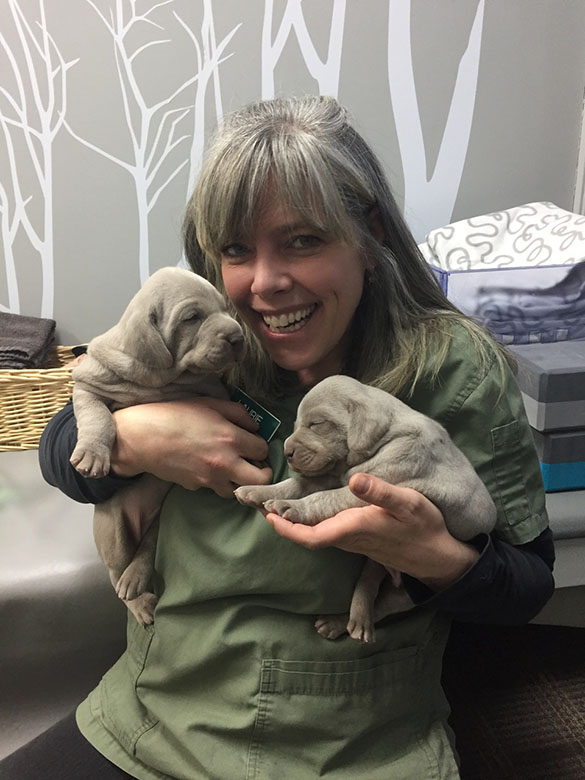Laurie's Blogs.
Oct 2021
Continuing education and competence

I found a quote that I’d like to share.
“Be curious as a clinician. You can feel confident with your skills and the research, but strike the balance of being open and critical to new research and ideas. Be willing to be somebody different five years from now than you thought you would be.”
Here’s where I found it: https://evidenceinmotion.com/pt-elevated-cpgs-narrow-the-width-of-the-goalpost-derek-clewley-on-neck-pain-cpg/
Think about it! So much research comes out in a 5-year period. Our knowledge, skills, and attitudes simply cannot remain the same IF we engage in continual learning!
Think back to what you learned in school compared to what you know and how you practice today? (This only works if you didn’t graduate last week! Well, maybe it does!) I don’t know if it’s true or not, but I remember hearing that what schools teach us is 5 - 10 years behind evidenced research, and that clinical practice can be 10 - 20 years behind research. So, how can you improve your knowledge and skills? Consume research!
(Hold onto that thought… I found a paper on the subject above. It’s 17 years on average!1)
It might be as simple as reading my blogs, newsletters, or articles. It might mean consuming online training videos, interviews, or presentations. It might mean going to conferences (maybe… one day in the future, right??). However, you go about it, it’s really the best way to stay at the top of your game.
I would also suggest befriending Pubmed and Google Scholar.
https://pubmed.ncbi.nlm.nih.gov/
Practice searching for things and learning how to format your search.
I actually want to urge you to do this before you type your question into that Facebook forum… because you can’t guarantee that the responders to your question are evidence informed either!
Now, just because you read an article doesn’t mean you’ve learned from it. Research can actually help us in learning how to retain and use the information we’ve consumed! (Ha, ha! Funny that!)
- •Low-stakes formative quizzes, delivered with feedback, can influence the amount of material practicing physicians remember from an educational intervention2
- •Another research article concluded that workshops and courses were significantly the most effective method compared to the other two methods in retention of knowledge, improving attitudes, improving clinical skills, improving managerial skills, and in improving practice behaviors.3
- •Journal clubs have been shown to be effective in discipline-specific professions4
Beyond this list of referenced information, I would also suggest some of the following:
- •Teach what you learned. Perhaps this means giving an in-service in your clinic or writing a blog on the article(s) you reviewed.
- •Set aside some weekly dedicated learning time where you can consume educational material.
- •Repeat key learning points out loud and/or create an info graphic to help you learn. Remember there are 4 different learning styles (in theory) – visual, auditory, read/write, and kinesthetic. Actually, I just found four more: Verbal (write & present); Logical (patterns & statistics); Social (collaboration & teams); Solitary (independent & individual).
- •Figure out where you learn best. I read most of the research papers I needed to read for my Master’s degree while walking on a treadmill. Sitting and reading just didn’t compare!!!
Well, I think I took this blog in directions I didn’t even intend at the outset. So, I might as well leave it here, before this becomes a book!
On that note! Happy educating, learning, retaining and growing as a clinician!
Cheers, Laurie
References:
1. Morris ZS, Wooding S, Grant J. The answer is 17 years, what is the question: understanding time lags in translational research. J R Soc Med. 2011 Dec;104(12):510-20.
2. Armson H, Roder S, Wakefield J, Eva KW. Toward Practice-Based Continuing Education Protocols: Using Testing to Help Physicians Update Their Knowledge. J Contin Educ Health Prof. 2020 Fall;40(4):248-256.
3. Alsaleem SA, Almoalwi NM, Siddiqui AF, Alsaleem MA, Alsamghan AS, Awadalla NJ, Mahfouz AA. Current Practices and Existing Gaps of Continuing Medical Education among Resident Physicians in Abha City, Saudi Arabia. Int J Environ Res Public Health. 2020 Nov 16;17(22):8483.
4. Thangasamy IA, Loeb S, Sathianathen NJ, Leveridge M, Stork B, Davies BJ, Woo HH. Evaluating the Effectiveness of an Online Journal Club: Experience from the International Urology Journal Club. Eur Urol Focus. 2021 Mar;7(2):482-488.


